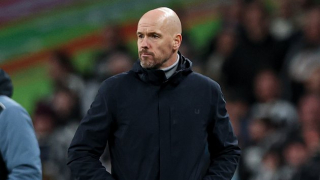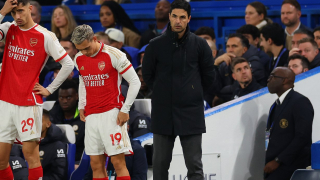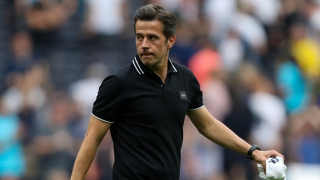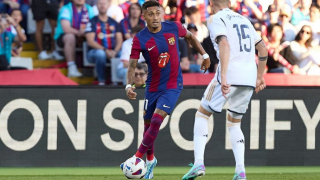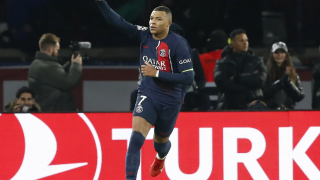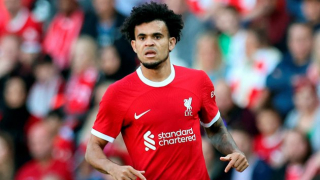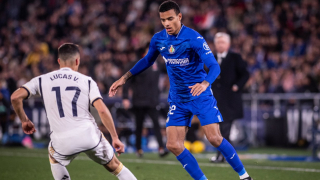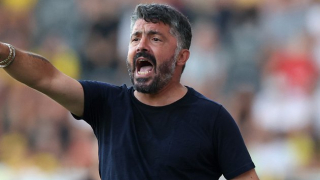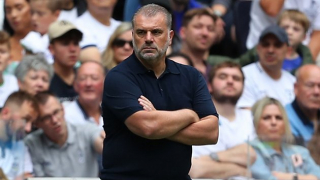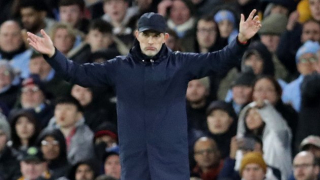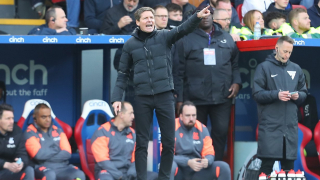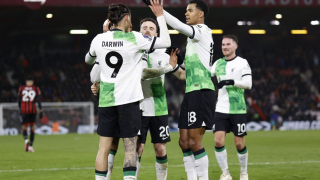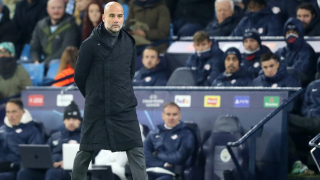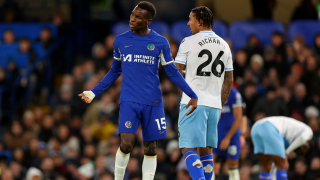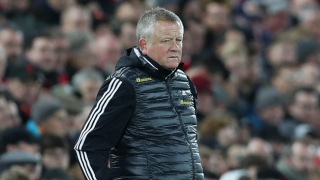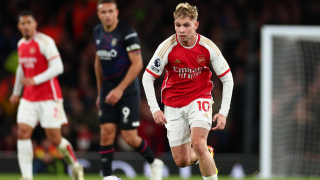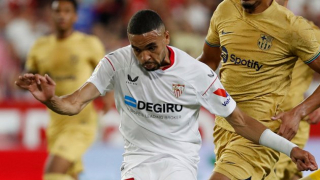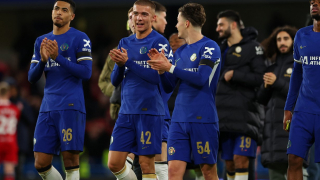The journo in front of me has a problem. A big problem to be exact. His accreditation does not appear to be waiting for him. Not an unusual occurrence it has to be said, but this gentleman has travelled across a couple of time zones and his grasp of English is on a par with Carlos Tevez.
Welcome to Champions League football.
I'm approximately one hour away from Anfield and Old Trafford but always check the day before with the club is my journey really necessary.
Certainly if my tribal journey involved departure lounges, passports and luggage carousels I kinda think I'd be checking ahead.
The media presence at CL games is pretty formidable as befits a competition that can earn the winning team up to £100m.
Premier League jurisdiction is suspended and, for one evening at least, Uefa is the power in charge, controlling the whole look and feel of the occasion.
This is particularly true of the media presence. For normal Premier League games only licensed individuals and organisations (i.e. mainly the written press) are allowed accreditation by the club.
Uefa is much more inclusive in who it will accept although the final decision still rests with the home club.
So, on CL nights you will see obscure Latvian web sites mingling with the broadsheets or Shanghai Radio swapping tales with a Polish webcam. Of course the downside is that Premier League press rooms and press boxes were never designed for such large numbers, leaving the place looking like a transit lounge full of overnight bags and camera cases.
Uefa markets its main cash cow with a religious fervour - matches are broadcast in over 70 countries and more than 40 languages worldwide. The 2006 final between Barcelona and Arsenal attracted the third biggest global TV audience for a sports event in that year, behind only the World Cup final and the Opening Ceremony of the Olympic Games.
Not surprising then that the Champions League logo is shown in the centre of the pitch before every game to the accompaniment of dramatic classical refrains.
This marketing can be intrusive and affect the paying supporters.
The advertising hoardings are particularly irksome.
Due to their larger size than the standard Premier League hoardings, grounds such as Old Trafford, Anfield and Stamford Bridge cannot use the front rows of seating as views of the pitch are blocked. Any season ticket holders have to sit elsewhere.
More controversially many grounds use the flat area at the front of the stands for wheelchairs and the disabled. Larger hoardings reduce the useable space. Liverpool usually provide 70 press seats for Premier League games; Uefa guidelines of 250-300 press seating can therefore make the press room a tad cramped.
Fortunately both Manchester United and Liverpool have invested in air conditioning particularly necessary when most press rooms are deep underneath the stands with no natural light. With hot food being served and all those bodies make sure you sit under a vent - and if the food contains garlic
Because season tickets do not guarantee admission for CL games clubs are able to provide overspill press facilities. These are rather crude affairs which befits their temporary nature - sheets of wood placed over existing seating with hastily provided power points are your work station.
In the dedicated press seating TV monitors are provided to follow the game and see incidents in detail. In overspill you either need good eyes or a very flexible neck to see those dam monitors. You do become very familiar with your neighbour however. I've helped a Ukrainian set up his wireless access, watched fascinated as the journo next to me typed from right to left in Coptic script and observed an Italian reporter consume heroic quantities of spirits taken from the hotel mini-bar.
This large number of people can also pose problems with the post match manager interviews. Liverpool are fine as they use their large Trophy Room but Manchester United and City use purpose built media theatre's.
When Jose Mourinho was in town United's media room quickly became full and the majority of the journos were left outside. With deadlines to meet it was a long wait for our colleagues to emerge with quotes.
Post match press conferences can last much longer than normal as each manager's comments and questions have to be translated, a particularly tedious time - happiness is Fergie or Benitez appearing first.
Managers are obliged to attend post match press conferences by UEFA which I suspect does not sit well with Mr Ferguson who for Premier League games will only talk to MUTV.
Uefa pride themselves on their green credentials, but quite how they square that with a 23 page match press kit featuring both teams, with facts and figures to satisfy the saddest statto.
At half time there is a resume of the first forty five minutes and the same at full time with yet more facts and figures.
So, we've collected our accreditation, been fed and watered, watched the game, attended the after match press conference, composed our match report. Job done Well, not quite.
There now comes the tricky task of sending the copy off or actually uploading the piece direct to the website. Either way we are now in the hands of technology of dubious reliability.
Very few journos actually phone their copy through these days, it is all done by email or even text.
Liverpool and Manchester City provide free Wi-Fi, Manchester United have a choice of Wi-Fi providers but you have to pay.
Most people nowadays actually use 3G mobile broadband dongles, and on that score United have one swift connection; must help having had Vodafone as a sponsor.
As mentioned, with press rooms being in the bowels of the stadium reception for mobile phones is virtually non-existent, same for 3G unless it's Old Trafford.
You therefore have the option of hoping the wireless connection will hold out or make a break for the press seating, find a connection, then with frozen fingers press the send icon.
UEFA also require Champions League club's to provide 'Mixed Zones'. These are basically areas set aside at the end of a game were players wander through and can be collared by the waiting press for pearls of wisdom.
It's all a bit artificial as players can choose whether to participate or not and inevitably the more sought after players tend not to appear.
As for my journo with no accreditation, he ended up sitting in overspill. For it's a curious fact of Champions League Football that there are always quite a lot of 'no shows' and therefore available seating.
As I leave, the Champions League circus is packing up until its return in a few weeks. Hoardings are being dismantled, television and communication cables are being rolled up, hoists are lowering cameras and equipment from the gantries and groups of supporters still hang around the player's entrance.
I get into the car and realise there is a strong smell of garlic

